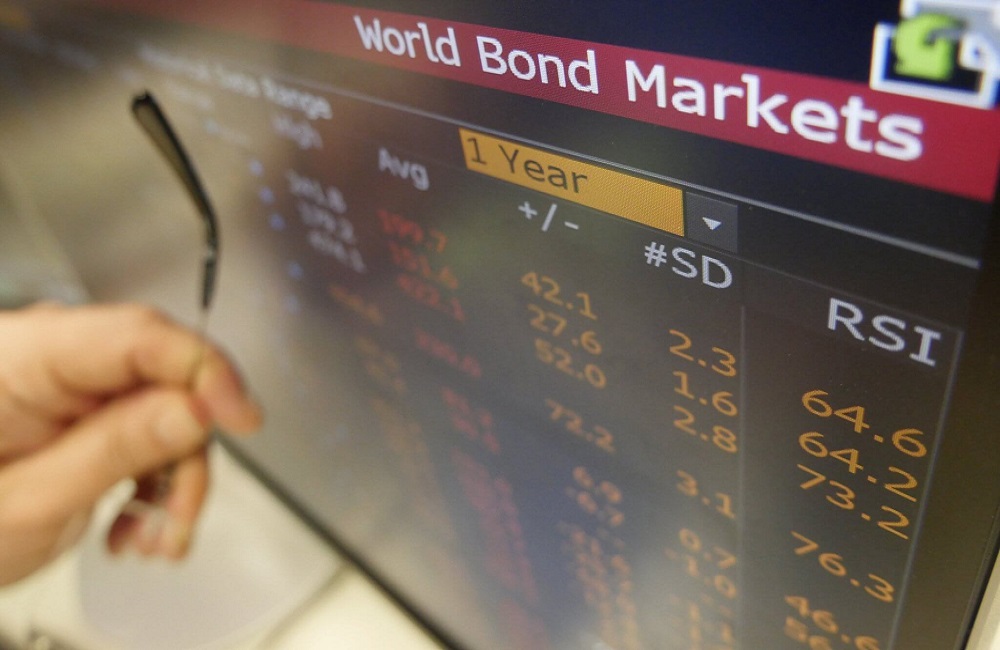Will global financial conditions see a further tightening?
Many policymakers have tightened monetary policy although their inflationary pressures seem to be smaller than the US.

The bond market has kept faith with the Fed, while other factors as well, such as asset purchases and concerns about a Covid-related slowdown, seem to have limit ed the rise in longer-term yields.
In late 1971, the then US Treasury Secretary John Connally told his G10 counterparts that the dollar was “our currency, but your problem”. Fifty years on and little has changed. However, Connally’s quip related to the dire global consequences of a prospective fall in the dollar. Today it is a surge in the greenback that keeps foreign officials up at night.
The late 1960s and early 1970s were marked in the US by soaring monetary growth, surging inflation and a ballooning trade deficit; much like today. But back then the dollar was locked in a fixed exchange rate mechanism with its value tied to gold. Many outside – and inside – the US perceived that this system could not endure these fundamentals and so it proved as the Bretton Woods system broke down.
This unleashed significant dollar weakness which concerned the rest of the world because it allowed the US to undergo a competitive catch-up. Fast-forward to today and the dollar is no longer part of a fixed currency system. Importantly, what has also changed is that the dollar is far more influential for its financial effects than its trade implications. In other words, overseas policymakers fear a surge in the dollar, not a collapse. This is because the difficulties created by the tightening of global financial conditions that result from dollar strength far outweighs any, help overseas countries receive as the surging dollar reduces the US’s trade competitiveness.
Mr. Steve Barrow, Head of Standard Bank G10 Strategy, said: “Our sense is that many policymakers, particularly in emerging market countries, are already tightening monetary policy although their inflationary pressures seem to be modester than the US. They are probably doing this to try to steal a march on the Fed. To adjust policy modestly and at an early stage to build a barrier that might turn out useful should the Fed ramp up the tightening of policy and so unleash a surge in the dollar. Perhaps unfortunately, we suspect that they are wasting their time. If the Fed does have to tighten the monetary screw much faster and much more aggressively than it has suggested so far, no amount of pre-emptive tightening by other countries is going to keep their currencies safe”.
The bottom line, as usual, is that it is what the Fed does that’s crucial, not anybody else. For foreign policymakers, this means that they have to hope on two fronts. The first is that inflation in the US proves as temporary as the Fed still seems to believe (which we doubt). The second is that, if US inflation does prove more persistent, the Fed recognises its crucial global position and resists slamming on the monetary brakes.
“We think that there’s a good chance that the Fed will behave this altruistically. But this does not necessarily mean that the rest of the world can breathe a sigh of relief. For while the Fed might not instigate a major tightening of global financial conditions via sharply higher policy rates and a surging dollar, the market might do the Fed’s work by pushing bond yields significantly higher”, Mr. Steve Barrow said.
So far, the bond market has kept faith with the Fed, while other factors as well, such as asset purchases and concerns about a Covid-related slowdown, seem to have limit ed the rise in longer-term yields. But this faith in the Fed could quickly disappear, bond purchases are being tapered and Covid (hopefully) won’t be around forever. In the end, a tightening of global financial conditions via surging bond yields could prove much worse than a monetary tweak emanating from more aggressive Fed policy. All this suggests that foreign policymakers will have to hope that US price pressures abate because otherwise global financial conditions will tighten significantly through faster Fed tightening or surging yields. “It is not a comforting thought, particularly not from our perspective because we see inflation staying stubbornly high”, Mr. Steve Barrow stressed.








